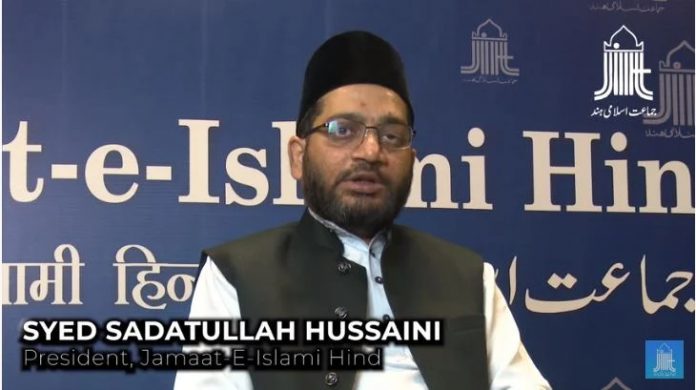New Delhi : Jamaat-e-Islami Hind (JIH) President Syed Sadatullah Husaini has voiced strong concern over US President Donald Trump’s decision to impose an additional 25% tariff on Indian imports, raising the total tariff to 50%. Husaini described the move as “unwarranted” and “selectively punitive” towards India, warning that it would harm both the Indian and US economies, as well as the stability of global trade.
In a statement, the JIH President said it was unacceptable for India to be singled out while other nations, including the European Union, continued importing goods and energy from Russia without facing similar measures. “Every country has the sovereign right to formulate its own foreign, trade, and economic policies,” he asserted, calling coercive economic tactics part of a “dangerous imperialist project” undermining global cooperation.
Highlighting the economic fallout, Husaini warned that the steep tariff would severely disrupt trade in labour-intensive sectors such as textiles, carpets, and food exports, impacting small and medium enterprises. He added that the move would also lead to job losses for thousands of workers and result in higher prices for US consumers.
He cautioned that protectionist policies, while often intended to safeguard domestic industries, could quickly become tools of geopolitical pressure. “The rules-based international trading order faces fragmentation, with serious long-term consequences for global prosperity,” he observed.
Calling for a recalibration of India’s foreign policy, Husaini criticised the current “one-sided tilt” towards the US, urging a return to a balanced, non-aligned stance. “Imperialist powers have never been — and can never be — loyal friends to nations that uphold sovereignty and dignity,” he said.
For India’s immediate response, he recommended a three-pronged strategy:
1. Trade diversification – strengthening ties with Japan, South Korea, the EU, Australia, ASEAN, BRICS, and other blocs to buffer against economic shocks.
2. Strengthening alternative economic powers – taking a leadership role in BRICS to ensure balanced global economic influence.
3. Domestic economic resilience – supporting labour-intensive manufacturing and agriculture, balancing fiscal consolidation with increased infrastructure investment, and boosting human capital.
Concluding, Husaini urged policymakers to treat this challenge as a wake-up call for deeper domestic reforms, including improving manufacturing capacity, ease of doing business, skill development, and lowering logistical costs. “A resilient economy is the best safeguard against external coercion,” he stressed, calling for a principled and independent foreign policy that protects India’s economic sovereignty.




